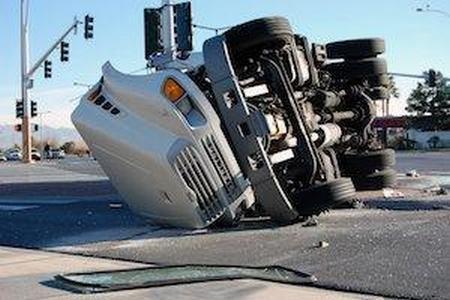Why Trucking Accidents Are Different From Car Accidents
 The thought of being in any type of motor vehicle accident is scary for most people, because the consequences can be tragic. There is no way to completely mitigate the risks of traveling in a vehicle, since the actions of other drivers, as well as basic human error, are impossible to predict. However, trucking accidents present different and more concerning issues because of the damage commercial vehicles can easily cause to passenger vehicles.
The thought of being in any type of motor vehicle accident is scary for most people, because the consequences can be tragic. There is no way to completely mitigate the risks of traveling in a vehicle, since the actions of other drivers, as well as basic human error, are impossible to predict. However, trucking accidents present different and more concerning issues because of the damage commercial vehicles can easily cause to passenger vehicles.
If you see one roadside crash involving a semi-truck, the extent of the danger involved is immediately apparent. The likelihood of sustaining catastrophic or fatal injuries is much greater in these types of collisions, due to the sheer size and weight of these vehicles. In a recent example of the very real danger commercial trucks pose on the roads, a tanker truck carrying propane gas exploded outside of Bologna, Italy after rear-ending another vehicle. One person was killed and almost 70 were injured in the blast. The dangerous materials that commercial trucks transport on a regular basis is just one factor that differentiates truck accidents from regular car accidents.
Federal and State Regulations
Unlike passenger vehicles, commercial trucks and the drivers who operate these vehicles are subject to additional regulations from federal and state governments. These laws address driver licensing qualifications, training, allowable load weight, permissible number of driving hours, and driver logs, among other issues. As a result, the actions of the driver and the trucking company responsible for maintaining the equipment and loading the vehicle are all scrutinized in trucking accidents to see if a failure to correctly follow regulations caused an accident to occur. Some of the most common causes of truck accidents include:
- Driver negligence (falling asleep, reckless maneuvers, speeding, inattention)
- Equipment failure
- Overloaded trucks
- Negligent maintenance
- Unbalanced loads
- Negligent hiring
- Improper driver training
- Drug-impaired driving
Multiple Liable Parties
Most passenger vehicle accidents involve two drivers, and identifying the responsible party or parties is fairly straightforward. Trucking accidents are rarely so clear. There are many different individuals involved in the maintenance, inspection, training, loading, and supervision of commercial vehicles. This means that identifying the at-fault party and determining liability is much more complex, and often requires an intense investigation to uncover.
The source of a crash could originate months in the past, when a mechanic missed a major structural or mechanical issue, or it could be due to inadequate training of drivers. Further, trucking regulations cap the number of hours a driver is allowed to be on the road, how much rest he/she must receive between trips, and how many trips are permitted by the same driver within a certain period. Concerns about the company’s bottom line or deadlines cause some outfits to ignore or skirt the rules in favor of higher cash flow, a choice that can ruin lives if an accident happens.
The varying obligations that different personnel in the trucking company are required to meet must be examined before liability can be assigned. An experienced truck accident attorney will understand the multiple layers at play and be able to execute an effective strategy for determining who was truly at fault.
Contact a DuPage County Personal Injury Lawyer
Accidents can alter lives, and if you were injured due to the negligence of a truck driver or trucking company, contact Mevorah & Giglio Law Offices to learn about your options for pursuing compensation. With decades of experience helping personal injury victims, our passionate Lombard truck accident attorneys will work to make sure you receive the compensation you deserve. Contact our office at 630-932-9100 to schedule your free initial consultation.
Sources:
http://www.bostonherald.com/news/international/2018/08/correction_gas_truck_explodes_on_italian_highway_1_dead_scores_hurt
https://www.ecfr.gov/cgi-bin/retrieveECFR?gp=1&ty=HTML&h=L&mc=true&=PART&n=pt49.5.380
 English,
English,
 Spanish,
Spanish,
 Polish,
Polish,
 Urdu
Urdu













 Make a Payment
Make a Payment



